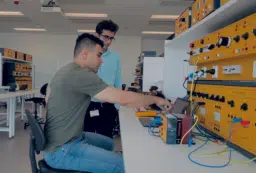Speedy thought may mean better memory for older adults – Janet Bryan.
Janet’s research is showing that the faster one thinks, the better one’s memory.
The ability to think faster may be the key to a better memory for older adults, according to a recent study by a young Australian scientist.
“Memory decline is a common and often worrying aspect of growing older,” says Dr Janet Bryan who researched the possible causes of memory loss as part of her doctoral studies at the Flinders University of South Australia.
“Some scientists believe that memory decline may be caused by a decline in functioning of the frontal lobes of the brain as we get older,” says Dr Bryan. “The frontal lobes are thought to be responsible for our high level thought processes such as our ability to make plans and think strategically. I set out to test the link between the declining functioning of the frontal lobes and memory decline and found no evidence to support it. What I did find was strong evidence to suggest that memory decline happens when our ability to think slows down The faster you think, the better your memory.”
Dr Bryan conducted four studies with volunteers from a cross section of age groups, testing a number of thought and memory processes of varying degrees of complexity. These included the ability to retrieve memories and perform a variety of tasks which involved thinking and reasoning.
“The results of these studies indicate that speed of thought and the ability to search for memories are important for memory performance. It seems that declines in these processes may be the reason why memory declines with age. The results also indicate that neurological changes in the brain may not necessarily cause changes in everyday function. This may be because of the brain’s capacity to adapt to change.”
The findings point the way to new approaches in dealing with age related memory loss. Steps we take to improve our thinking speed are likely to help our memory, according to Dr Bryan. “Exercise, sleep and nutrition may well provide the key. This is a promising research direction of increasing importance to Australia’s aging population.”





 Fresh Science is on hold for 2022. We will be back in 2023.
Fresh Science is on hold for 2022. We will be back in 2023.